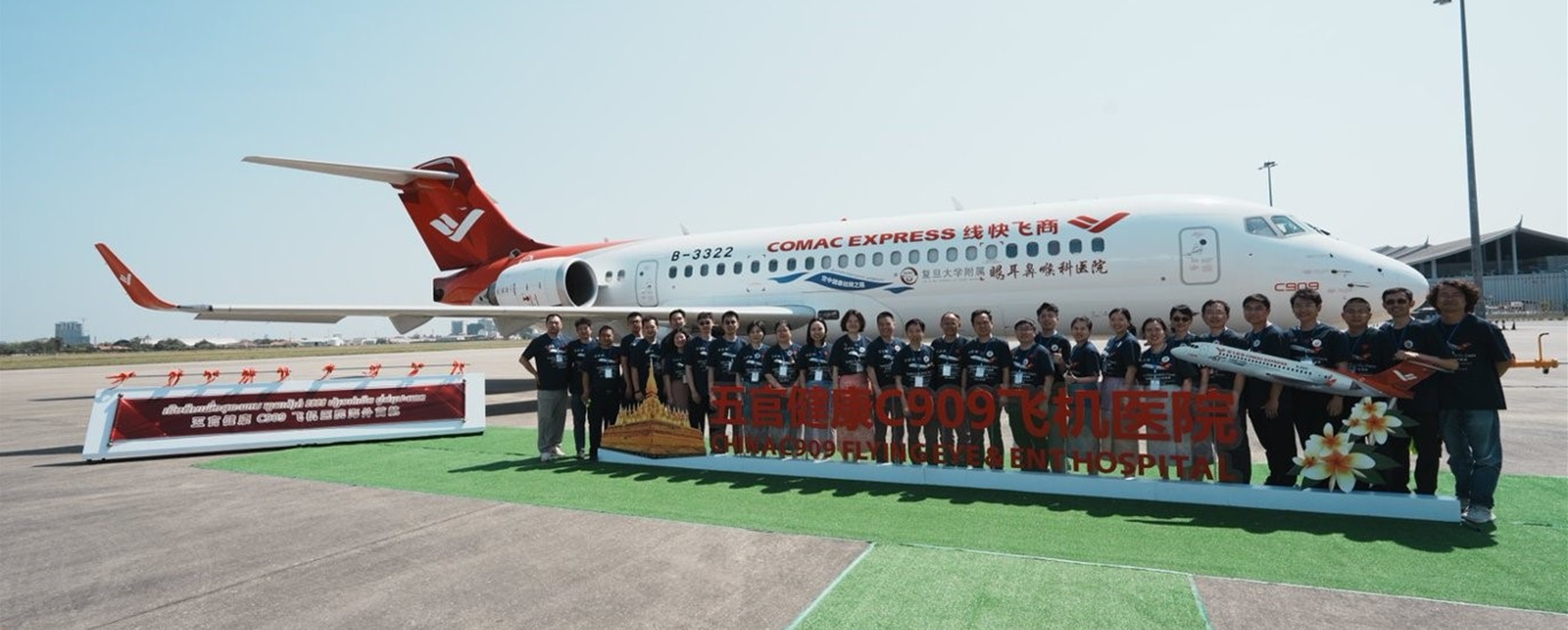[China Tech] Shanghai-made surgical robots drawing attention at home and abroad
[China Tech] is a column dedicated to the innovations reshaping China – and, inevitably, the world. From cutting-edge AI labs and next-gen robotics to homegrown apps that redefine daily life, we explore the breakthroughs that emerge from the country's relentless drive for technological dominance. Some are game-changers, others cautionary tales, but all offer a glimpse into the future as it's being built, at breakneck speed, in China.
Shanghai's locally-developed surgical robot systems are wowing professionals, from both home and abroad. And, many have come all the way to the city to receive training and seek cooperation with local experts.
A group of five Russian medical professionals visited Shanghai Ninth People's Hospital to learn how to operate the Honghu Orthopedic Surgical Robot and witnessed Dr Li Huiwu perform two operations of total knee arthroplasty, a treatment for patients with terminal knee osteoarthritis.
Honghu is a China's self-developed surgical robot jointly innovated by a team led by Li and Shanghai MicroPort MedBot (Group) Co. It is the first and only domestic surgical robot to receive licenses from all major countries and regions and has been introduced in over 71 domestic hospitals and around 20 hospitals in the United States and Europe.
![[China Tech] Shanghai-made surgical robots drawing attention at home and abroad](https://obj.shine.cn/files/2025/03/05/75d01fb9-ca15-41bd-b7e1-9d6c1a7f6e81_0.jpg)
![[China Tech] Shanghai-made surgical robots drawing attention at home and abroad](https://obj.shine.cn/files/2025/03/05/d0b0fba0-6ed2-4b42-9c43-1c0235d597c8_0.jpg)
"Actually, several expert groups from various countries have come to Shanghai to learn the skills on operating the robot," said Li, who showed that the robots can control the accuracy of osteotomy (bone cutting) within 0.1 millimeter and complete the whole process of individualized osteotomy within 20 minutes.
The Russian experts expressed their strong desire for cooperation, which will go along further with improvements in satellite communication and 5G technology.
Apart from Russian experts, medical professionals from northwest China's Xinjiang Uygur Autonomous Region also collaborated with experts from Eye, Ear, Nose and Throat Hospital of Fudan University in Shanghai on a 5G-assisted surgery using domestically-made transoral surgical robot on high-end minimally invasive surgery in the throat, with bleeding less than 1 milliliter.
With the support of artificial intelligence and multimodal digital twin technology, experts in Shanghai teamed up with medical staff in Xinjiang to complete a surgery at Kashgar Second People's Hospital on a Kashgar patient with early vocal cord cancer.
During the surgery, Dr Tao Lei at the Shanghai hospital operated the system in the city, while the robot in Xinjiang conducted the operation.
This transoral robotic surgery system was jointly developed by a team led by Tao and Chengdu Borns Medical Robotics Inc.
![[China Tech] Shanghai-made surgical robots drawing attention at home and abroad](https://obj.shine.cn/files/2025/03/05/259fcfef-71af-48b0-8fc5-73ede68e63be_0.jpg)
![[China Tech] Shanghai-made surgical robots drawing attention at home and abroad](https://obj.shine.cn/files/2025/03/05/fa1d38ac-0a9f-436e-9b85-d083ba84081b_0.jpg)
![[China Tech] Shanghai-made surgical robots drawing attention at home and abroad](https://obj.shine.cn/files/2025/03/05/2be46e6a-b87e-4569-bcdb-df09aa365ac1_0.jpg)
This transoral robotic surgery system is specifically built for the tight and curving structure of the throat, enhancing its visibility, precision, and flexibility to cover the treatment of the mouth, throat, and hypopharynx, which has tremendously important clinical implications, according to Tao.
There is no equivalent system in the world as of now. So the technology has piqued the interest of medical professionals, both at home and abroad. It is also a breakthrough for the domestic robotic surgery system, which is growing more specialized, precise, and intelligent, he added.
In Case You Missed It...



![[1st in SH] Why Is Jing'An District Killing It With Foreign Brands?](https://obj.shine.cn/files/2026/02/10/6529d89c-1ba5-4300-a772-8a50a1e4c91b_0.jpg)




